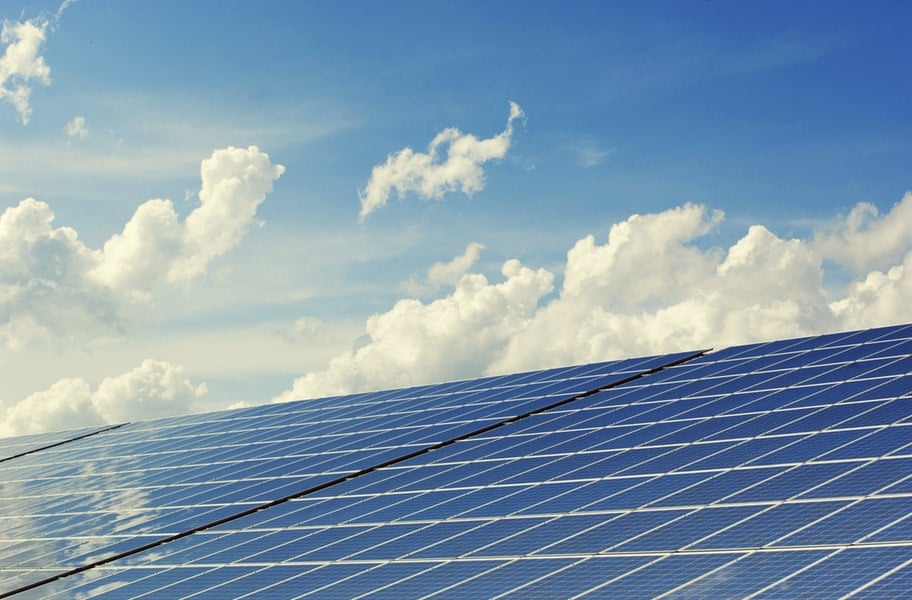Everything you need to know about the Tesla Solar Roof offer in Australia
Tesla Australia have launched their 2019 offer for Solar Roof. Tesla Australia has added their Solar Roof offering to their website. This outlines...
4 min read
![]() Solar Trust Centre Team
:
Nov 15, 2017 11:36:00 PM
Solar Trust Centre Team
:
Nov 15, 2017 11:36:00 PM

Whenever you buy any product, you want to have the best quality, the best value and make sure it’s worth your hard-earned money. You don’t want to spend your money on cheap and unreliable products that will only last a few months or just a few years.
If you’re thinking about installing a solar power system at your home, you should get the best deal and the best product you can afford by going to a trusted solar manufacturer or retailer in your area. Having a solar power system can also be considered as an investment, and you don’t want your investment to go down the drain after a very short period of time.
The Clean Energy Council Product Testing and Compliance Assessor, Sandy Pulsford, warned consumers of the quality of some solar panels being sold in Australia at the All Energy Conference in Melbourne this month. Pulsford manages the council’s testing program that quality checks panels sold in the country. The council has found many issues across the range of solar panels being sold in Australia – it’s important to be educated so you don’t find yourself wanting your money back for cheap quality solar.
The findings of the CEC’s tests are enough to make any solar owner worry. High-end panel owners are most likely not going to come across the following issues, however, it can’t hurt to do some research on your seller or manufacturer.
The numbers presented by Pulsford focus on low cost, Original Equipment Manufacturer (OEM – meaning that panels were made by a manufacturer but re-branded or re-badged under the other company’s name) panels and high volume panels, as these are the subdivisions of solar panel manufacturing that have produced the most problems in Australia.
The CEC tested 30 solar PV manufacturers in these subdivisions and found:
Solar Quotes have also made an article related to the Sandy Pulsford report that having Tier One panels is not an absolute guarantee of quality, however, a company will not reach this rating if they are doing bad business or providing cheap quality solar. Tier One is your best bet for solar with no issues in Australia.
Not a single large-scale solar farm or solar project will use solar panels that are lower quality than what they asked for. It’s a big waste of money for the solar farm and bad business for the manufacturer.
To be in business for a long time, Tier One solar companies will have to take care of their reputation as a reliable source of solar hardware. They have to protect their brand and their business.
Many problems are found with panels that are sold in large volume, sold at low cost or that do not have proper quality control. Companies selling these types of panels are in it for the money rather than to provide quality products and encourage renewable energy technologies.
The specs of 45% of panels from OEM, high-volume and low-tier manufacturers did not match their data sheets, meaning that the panels did not have the components specified at the point of sale. In this case, the manufacturer has decided to install cheaper components to save money. This mean panel owners aren’t getting what they paid for and are being misinformed.
While the CEC vets datasheets, they have no real way of ensuring the seller or installer is providing the customer with the correct version, so the information could still be untrue.
Microcracks are also common in these types of panels. A new, high-quality solar panel should have zero cracks when it arrives to be installed. Installers should also be properly trained so no cracks can occur during installation. Each micro crack reduces a panel’s output. It also increases the risk that more damage will be done to the panel as cracks become bigger due to exposure to the elements. If you receive a solar panel with microcracks, you are going to be producing power less efficiently.
Click here to see an accredited solar retailer list from the CEC. This list will also help you check if a solar firm is de-listed or not.
Normally, warranty and T&C issues should be handled by the manufacturer. If this doesn’t work for you or you get no response, click here to read about the agencies per state you can call for any unresolved warranty and T&C violations.
Homeowners want to get the best deal and save money. Unfortunately, this can lead to a whole range of issues (including the ones already mentioned) when buying in the solar PV industry.
Pulsford highlights this in his presentation on ensuring high-quality systems and avoiding cheap solar issues. He states that if a homeowner insists on the lowest price, they’ll also get the lowest quality – so be careful what you say to a seller or installer that you don’t know much about.
Know that if you ask for the lowest price on solar PV:
If you’re thinking of installing solar a power system, this can help you in your research on getting the best deal and the best hardware that you can afford. Also, whenever you check a panel’s datasheet, be aware that some offers are only “on request” features and this may not be stated. Be explicit with your solar dealer if you want high-quality panels with any of the following features:
Furthermore, according to the Australian Competition and Consumer Commission (ACCC), a solar provider should not:
If you already have installed Tier One panels, you have less reason to worry. For lower tier users, just hope that everything goes well with your system. If something fails or you realise you haven’t been given what you asked, you have the ACL and your State energy ombudsman for your protection.
Further reading: Solar Quotes has a good write up of the session.

Tesla Australia have launched their 2019 offer for Solar Roof. Tesla Australia has added their Solar Roof offering to their website. This outlines...
We all have our misconceptions about solar power. These misconceptions might be around how solar power actually works, how reliable the products are,...
We all have our misconceptions about solar power. These misconceptions might be around how solar power actually works, how reliable the products are,...